

While big games like Grand Theft Auto V and Battlefield 4 were, as usual, the most popular titles released last year, the surge of indie game popularity has not subsided. 2013 saw the release of literally hundreds of indie games, and many of them made their mark by ignoring convention and picking a less traveled path. Here are five indies that were unlike anything released this year – or, for that matter, ever.
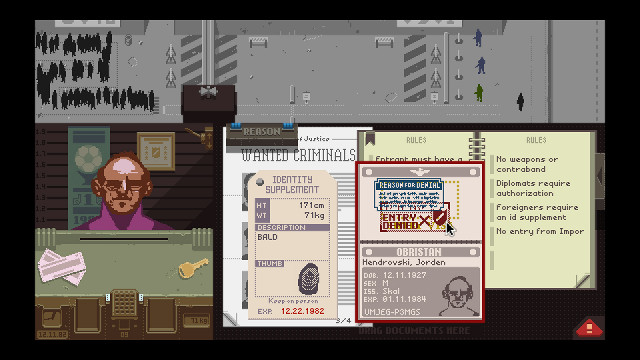
Games that let you play the “bad guy” aren’t uncommon, but usually you’re cast in the role of an anti-hero; powerful, important, visible, even justified in spite of your vicious actions. Papers, Please is different. It’s arguable that you’re not even a “bad guy,” per say. Yet the game can make you feel dirty and ashamed.
You’re cast in the role of a border agent, and your job is to process individuals who want into the great state of Arstotzka. This is accomplished by reading memos, checking passports, and searching individuals. Though this may sound boring, it can be quite challenging and will inspire your inner detective, as you must search through the information at hand to spot problems that could indicate a person isn’t who they appear to be.
In theory, then, you’re simply protecting your homeland, but individuals don’t just disappear after you let them through, deny them, or detain them. A series of in-game newspapers and reports provide feedback. You may read, for example, that a person you searched and found carrying a weapon has been executed, or a person you cleared was actually a terrorist and killed several citizens. Playing the game forces you to walk a tightrope between totalitarianism and safety, and you’ll often find yourself falling off it.
Papers, Please is $9.99 on Steam, GOG and the Humble Store.
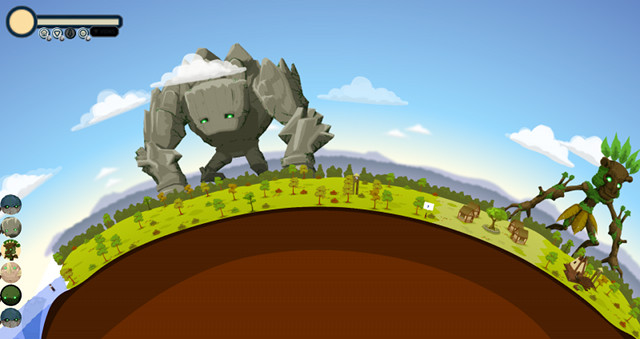
Reus is a god-game in the purist sense of the term. Your job is to manage the people and help them prosper, but you can’t simply select each person and tell them what to do. Instead, you must influence your flock by helping their villages grow while ensuring that neighbors get into wars and kill each other off. This is a careful balance to pull off; you naturally want to help your people grow and prosper, but helping too much can cause an imbalance of power and war. There’s no end-game in Reus – you simply play to fulfill achievements which become increasingly difficult.
The game’s coolest feature is undoubtedly the giants that act as expressions of your will. There are four in total, each with its own particular powers that can help or, if necessary, punish your people. As your villages grow, they level up, expanding their powers with the help of your people.
Reus is $9.99 and available through Steam, GOG, Gamer’s Gate, the Humble Store, and various other stores.
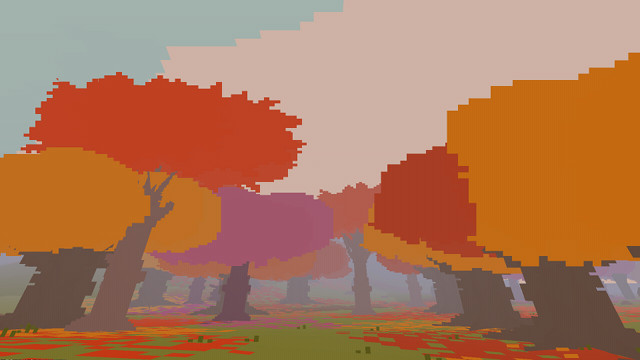
This simple ambient game is arguably not a game at all. There are no obstacles to overcome, no enemies to beat, no achievements to earn. The entire point is to simply exist in a beautifully rendered world.
Strange? Maybe – but, as anyone who has wandered through an open-world game like Skyrim or Minecraft can tell you, there is a certain beauty and wonder to exploring a virtual world for its own sake. Proteus is meant to harness the desire to discover, and it does exactly that.
There’s not much else to say. Discovering the game for yourself is the point, and explaining more would do you a disservice. You can buy Proteus for $10 from Steam and the Humble Store.
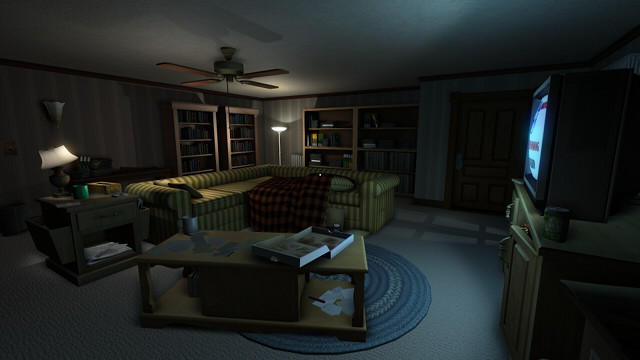
Gone Home is also a game about exploration, but it takes an entirely different form. Instead of exploring a bright, beautiful, seemingly endless world, as in Proteus, this title casts you in the role of a young woman who has spent a year traveling Europe. She’s now returning home to the states – but when she arrives, there’s nothing to greet her but an ominous note.
What results is a mix of exploration, detective work and ambient horror that’s strangely engaging. I say “strangely” because there’s no particular challenge. No bad guys jump out at you, no traps try to ensnare you, no puzzles block you. Yet a foreboding atmosphere lays thick over the game, raising your adrenaline despite the fact you’re just exploring a house.
All of this is tied together by a strong narrative delivered with excellent music and voice acting, which slowly reveals why the house is empty. I won’t spoil anything, of course; you’ll have to see for yourself.
Gone Home is $19.99 on Steam and the developer’s website.
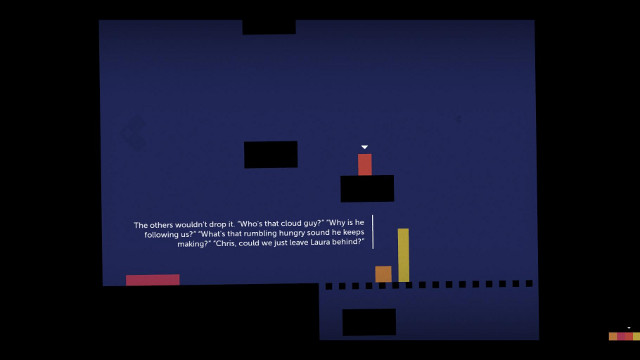
Puzzle games have existed since the dawn of gaming, and they remain one of the most popular genres. Virtually all of them focus on gameplay, and often it reinforces a sense of equality and order. Things are supposed to fit together in a certain way, and some solutions are obviously superior to others.
Thomas Was Alone messes with that conception. You progress through the game using a number of different puzzles pieces, each with their own powers and attitudes. Yes, attitudes. There’s a narrative that ties the game together, and it turns out that puzzle pieces can learn, dream and hold grudges.
You can grab the game for $9.99 on Steam, Desura, PlayStation Network, and a few other outlets.
All five of these indie wonders are unique in their own way, yet all five of them are also a lot of fun. That just goes to show that a big budget and conventional gameplay aren’t requirements for developing a great experience. Was one of these your favorite indie of 2013, or did some other game grab your attention? Let us know in the comments!
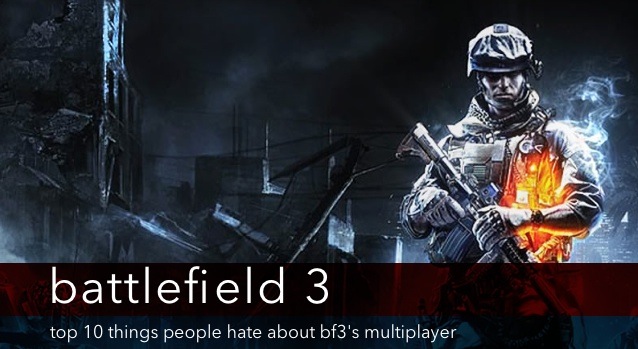
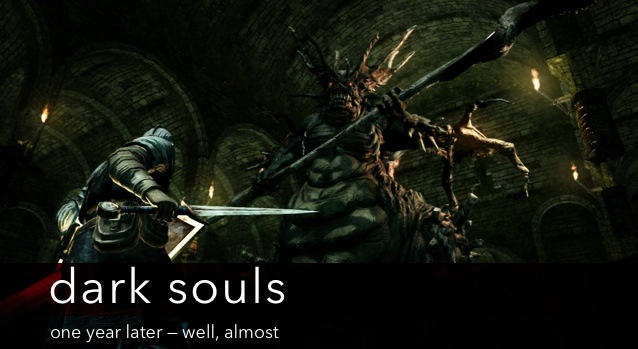
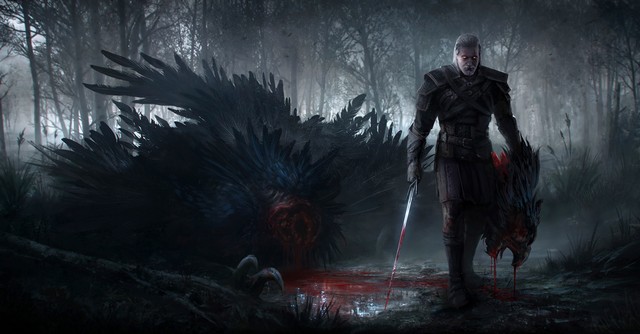
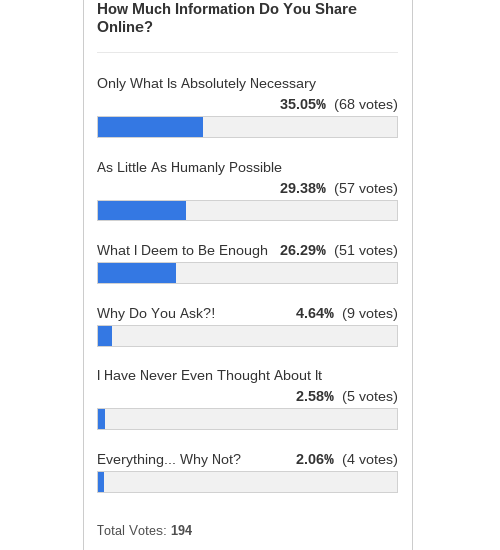
 Project Zomboid: Beginner Guide To Surviving The Apocalypse
Project Zomboid: Beginner Guide To Surviving The Apocalypse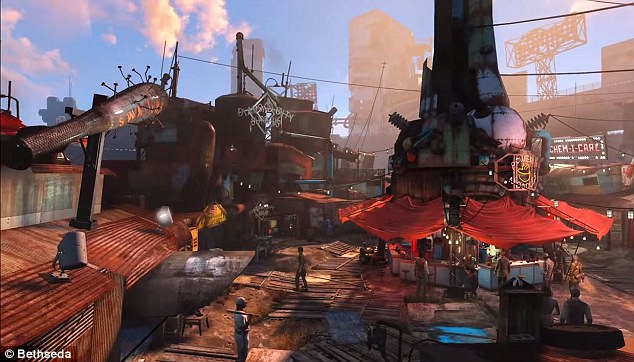 Fallout 4: Unlucky Valentine - Find Nick Valentine, Discover Vault 114 and Park Street Station
Fallout 4: Unlucky Valentine - Find Nick Valentine, Discover Vault 114 and Park Street Station Destiny: The Taken King Guide - What is Armsday
Destiny: The Taken King Guide - What is Armsday Top 9 Best Pirate Games: Best On The High Seas
Top 9 Best Pirate Games: Best On The High Seas Watch Dogs (PC) Get 3000 XP in less than 10 minutes
Watch Dogs (PC) Get 3000 XP in less than 10 minutes